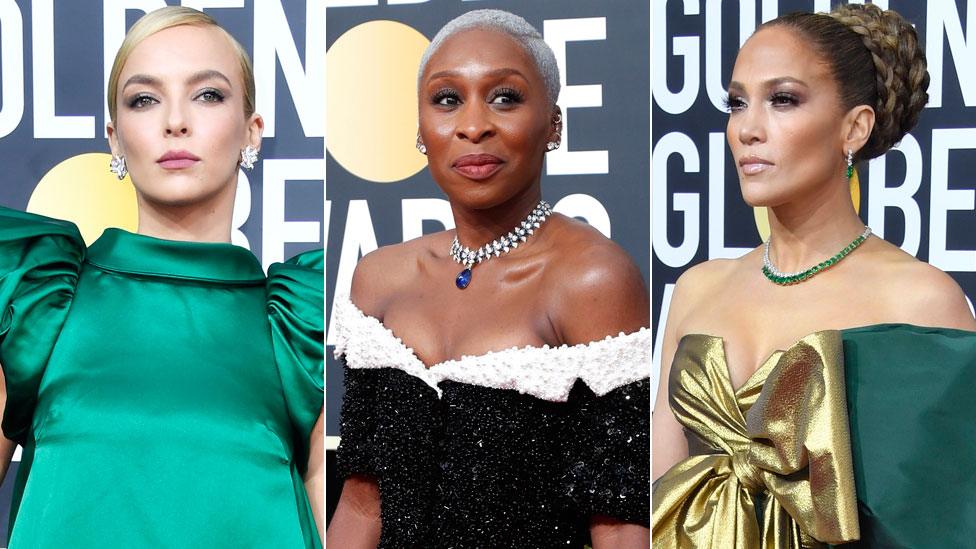Killing Eve: How author Luke Jennings created Villanelle
- Published
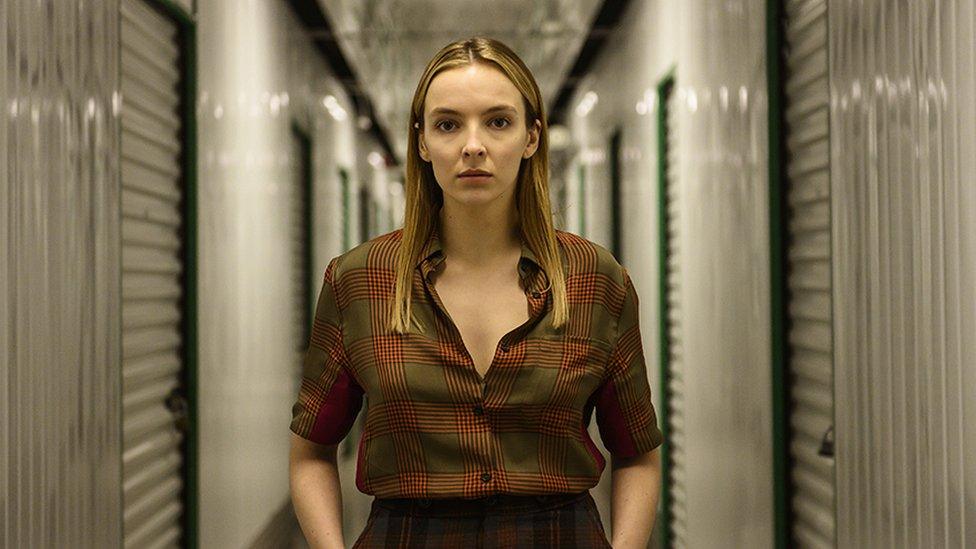
"She came to me fully formed and it was clear, adventures needed to be made for her."
Luke Jennings is the person who created the captivating, but equally terrifying, Villanelle.
Her adventures on paper turned into the hugely popular television show Killing Eve.
It's become one of the BBC iPlayer's most streamed shows of all time, and series three has been a huge hit on iPlayer during lockdown. But we don't often hear from the man who thought up Villanelle's world.
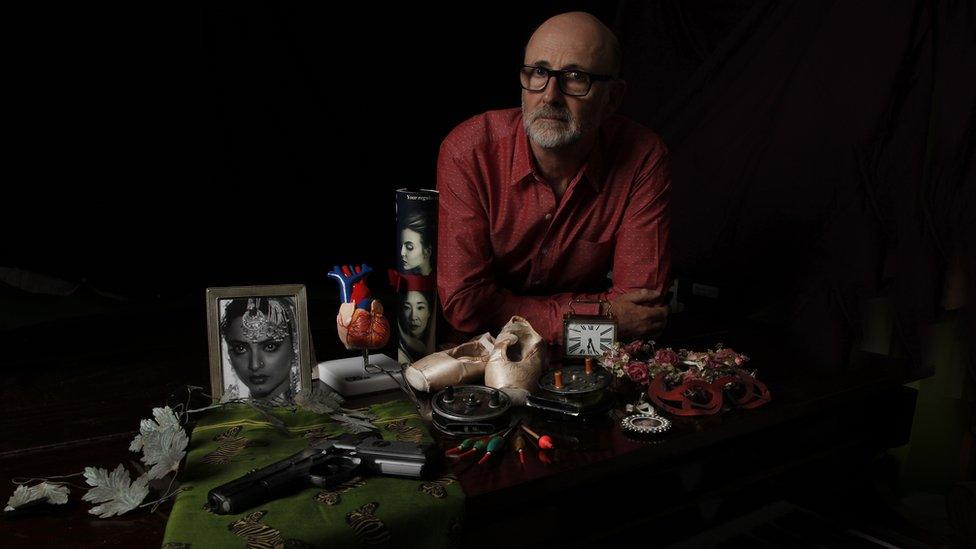
Luke Jennings, the author who created Villanelle, surrounded by items and pictures from all his novels
It was back in 2013 when he was approached to write some short novels and the assassin was brought to life.
Luke says Villanelle's name, her Russian background and her questionable occupation just came to him and "she didn't enormously change" from there.
"I'd often thought of the idea of never having to worry about money," he explains.
"You could live the life you wanted but in return you have to every so often, just go and kill someone.
"She is the person who says 'Yes' to that deal. You know, it suits her, it really works for her."
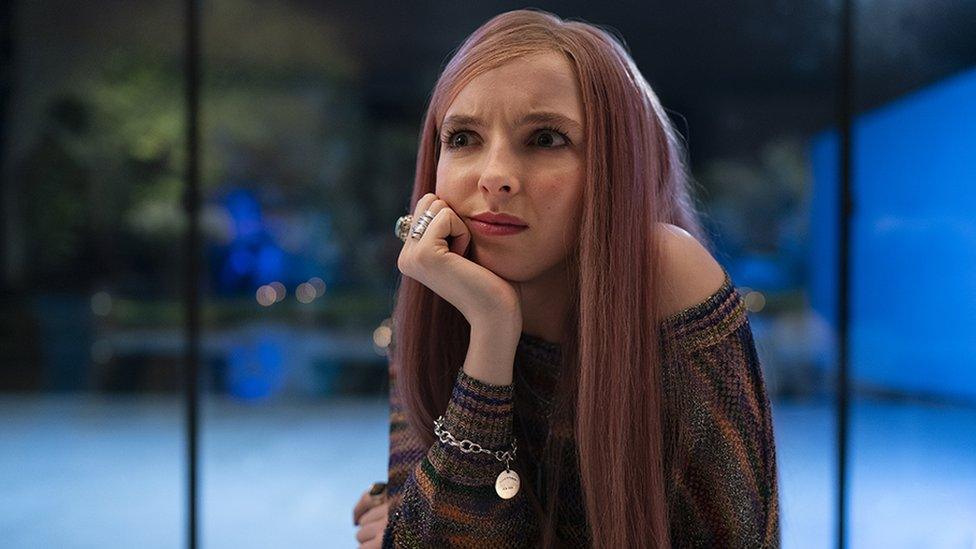
She's smart, funny, stylish, what's not to like?
A very likeable psychopath
Villanelle is a cold-blooded murderer but for the character to work she needed to have some redeeming qualities.
"I always wanted to see how far I could push it, and how appalling I could make the character and have people still root for her," Luke says.
She's clearly a psychopath but she is also intelligent, speaks many different languages and you wouldn't bet against her in a fight.
Then, there is her jaw-dropping wardrobe, her playfulness - she's funny. You could easily imagine having a fun night out with her.
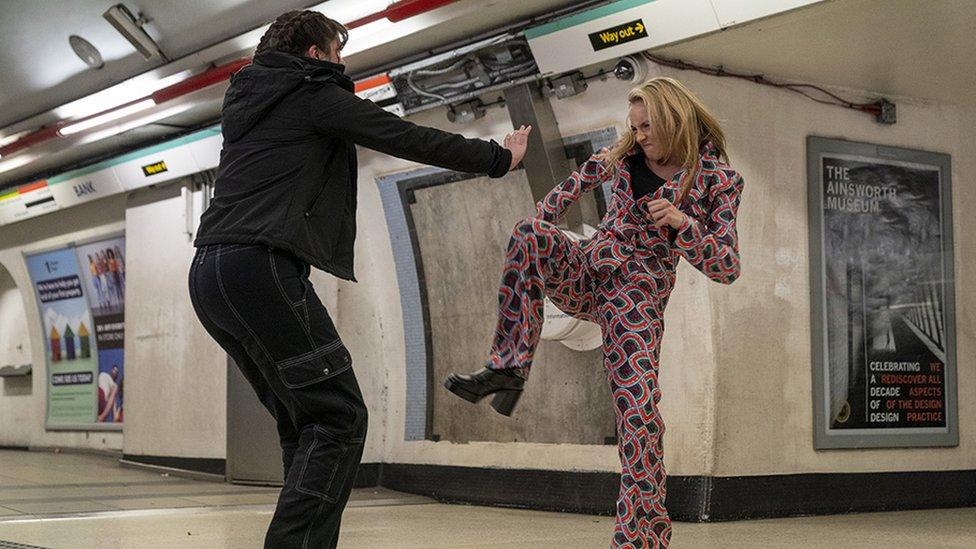
Designer suits for even a casual tube journey and minor altercation
But Luke thinks we are most drawn to how she lives her life - she is completely carefree.
"There's no part of her life that she isn't in charge of," he says.
"Here is somebody who is notionally answerable to her boss, but does what she likes and lives exactly the life that she wants.
"And just at the end of doing some really gruesome killing, she just sort of walks away happily into the sunlight and moves on."
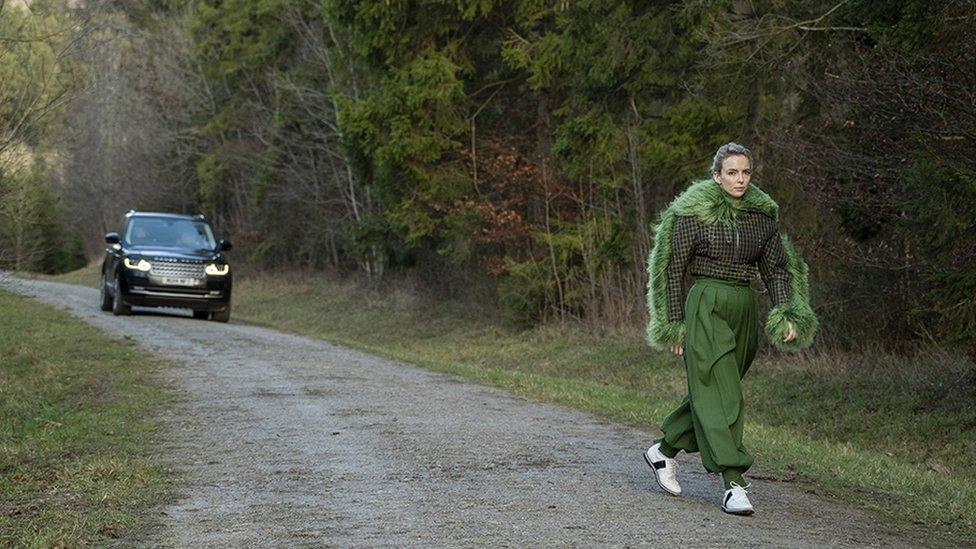
A scene from Killing Eve? Or a glossy magazine shoot?
Style icon
Whether it is designer gowns, power suits, expensive blouses or even fancy dress, Villanelle has a knack of pulling off every outfit she puts on.
There are countless articles on why she is such a style icon and how you can recreate her various looks for half the price.
And while Luke wasn't in charge of the clothes we see on screen, he says it was an integral part of the character he wrote.
It helps us understand how much she loves having "nice things" and how killing people is a small inconvenience on the way to buying everything she wants.
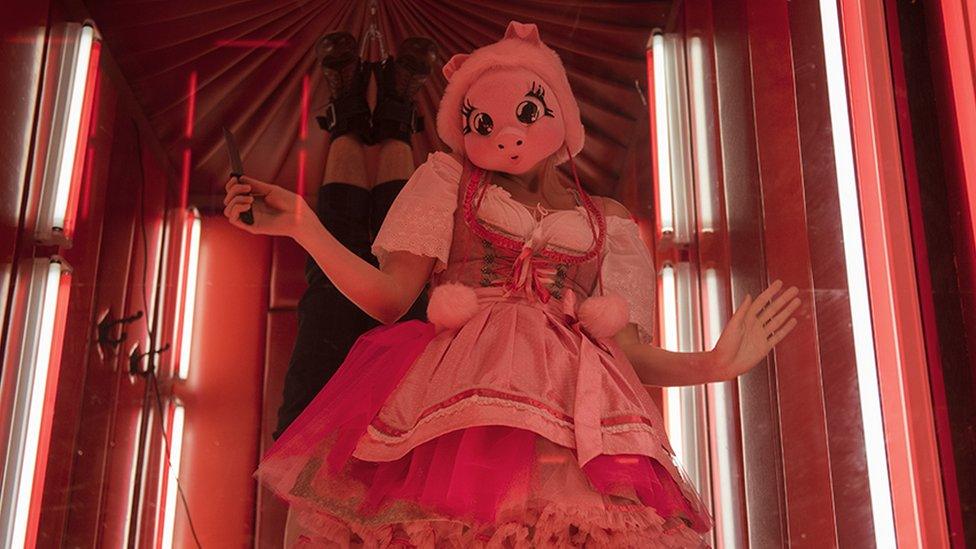
Can you even imagine what Villanelle would wear to the Met Gala?
"She likes her clothes and this is what this series caught very accurately," Luke says.
"I was always very specific about the clothes and the fact she dresses for herself.
"It's not to attract other people, it's not to attract attention or men, she just buys things just because she can."
This is also seen in what she eats - there is no restraint or suggestion of any sort of diet, she is always seen tucking into cakes, ice-creams, that massive bowl of pasta.
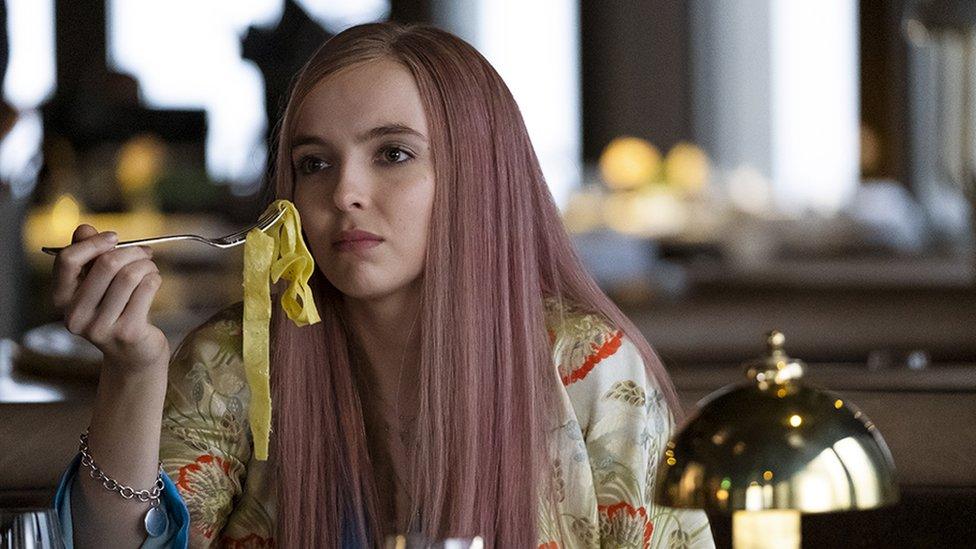
Among other things, Villanelle is definitely a foodie
The perfect assassin
Villanelle has killed a huge number of people and for the most part walked away without anyone noticing.
So how do you write these seemingly perfect murders for your character?
Luke approaches it as a problem to solve, so he asks himself these questions: How does she get in there? How does she do it? What weapon? How does she leave no trail and not get seen?
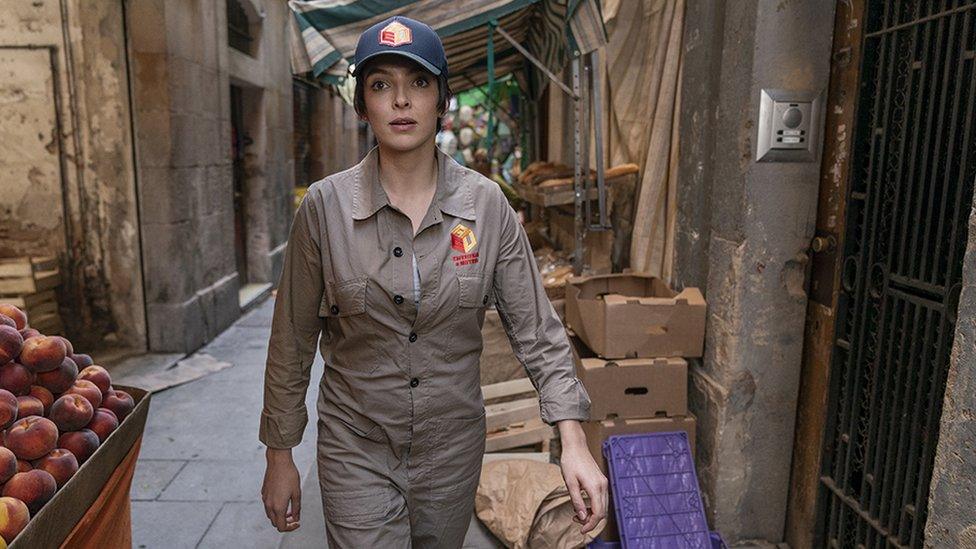
Casually off to kill her next victim
"You just have to solve every aspect, one by one," he explains.
"That's part of the the fun of writing the character. It's slightly different in the TV series but I made all those kills actually work in the books.
"People read books slowly and think about it, so you have to work out every step of the way."
Eve
In order to counteract the madness of Villanelle, Luke says it was crucial there was someone to balance her out. So in came Eve.
"It was clear she needed an antagonist to represent the rest of us," he explains.
"To represent the world and ordinary life.
"Where Villanelle represents everything extreme, everything that is unbalanced, Eve is the rest of us - she burns the toast, she stumbles along doing the best she can."
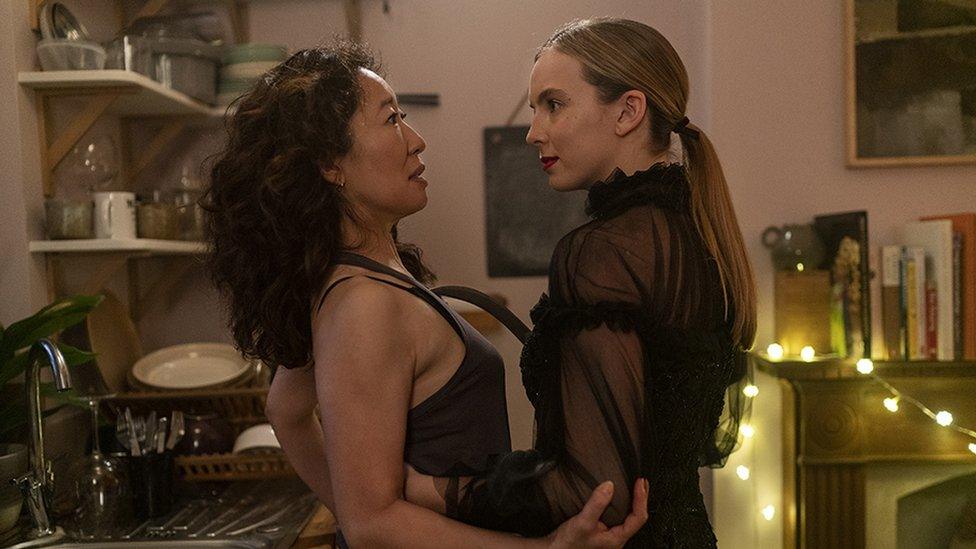
Eve is key to bringing some balance to Villanelle's character
Eve also sees the likeable qualities that we as the audience do.
But more importantly, she makes Villanelle feel something, which makes the character more human.
Phoebe Waller-Bridge
When Luke Jennings' book was taken up by a production company, a relatively unknown Phoebe Waller-Bridge was one of the names considered for writing the script.
"I sort of ambushed her when she came out of a performance of Fleabag in the Soho theatre," Luke admits.
"She'd read the book and she was keen and wanted to do it.
"We just went off to a cafe for the rest of the afternoon and talked. It was great, we got on really well."
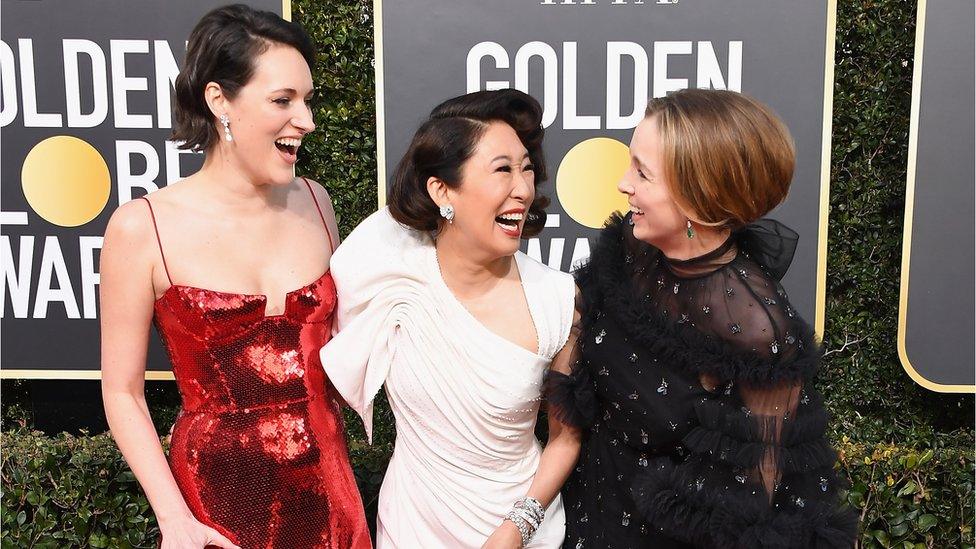
Phoebe Waller-Bridge with Sandra Oh and Jodie Comer at this year's Golden Globe Awards
Inevitably, Phoebe helped shape the character we now see on screen.
Over the course of 18 months, they regularly chatted about all of the characters, whilst working on different projects.
"Phoebe would ring me up at odd times with very vague questions like, 'What does Eve want to know?" he laughs.
"I would attempt to answer it and we would talk about all these different scenarios, send each other music clips."
They would also chat between themselves about the casting too. And, they both agreed on one thing.
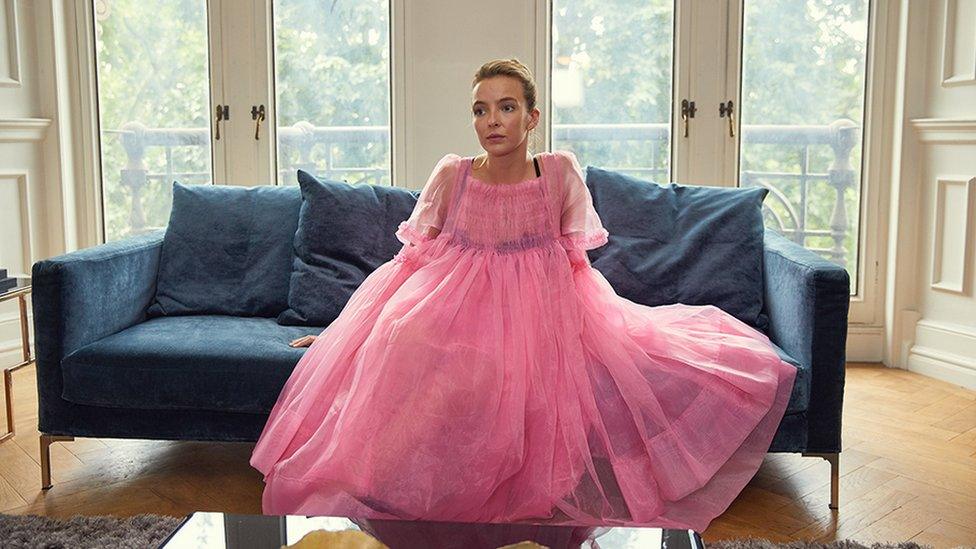
This pink dress has become an iconic piece of TV fashion and this was the scene Jodie acted for her audition
Jodie Comer
She has won a Bafta and an Emmy for her role as Villanelle - it's hard to imagine anyone else playing her now.
But there was an audition process and Luke saw four different actresses' screen tests. They all had to perform the psych test scene when Villanelle wears the pink dress in the first series.
"What you see now, that French-Russian accent, the manic presence and the off-the-wall delivery, that was all Jodie," explains Luke.
"She wasn't being directed, she had worked that out by herself just for this audition.
"There were three others, all of whom were great in their own way, but afterwards Phoebe and I were talking and we both said 'It has to be Jodie' - and it was."


Follow Newsbeat on Instagram, external, Facebook, external, Twitter, external and YouTube, external.
Listen to Newsbeat live at 12:45 and 17:45 weekdays - or listen back here
- Published8 April 2020
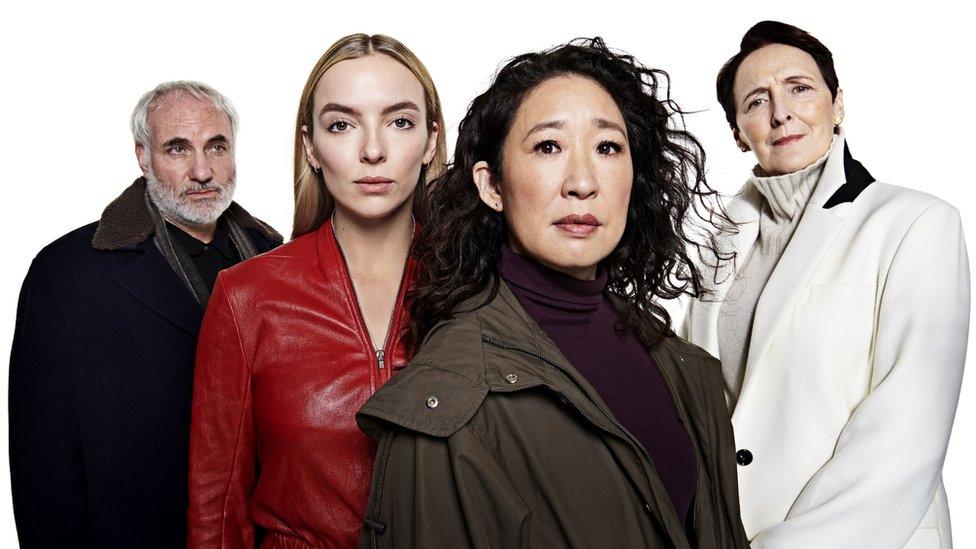
- Published4 June 2019
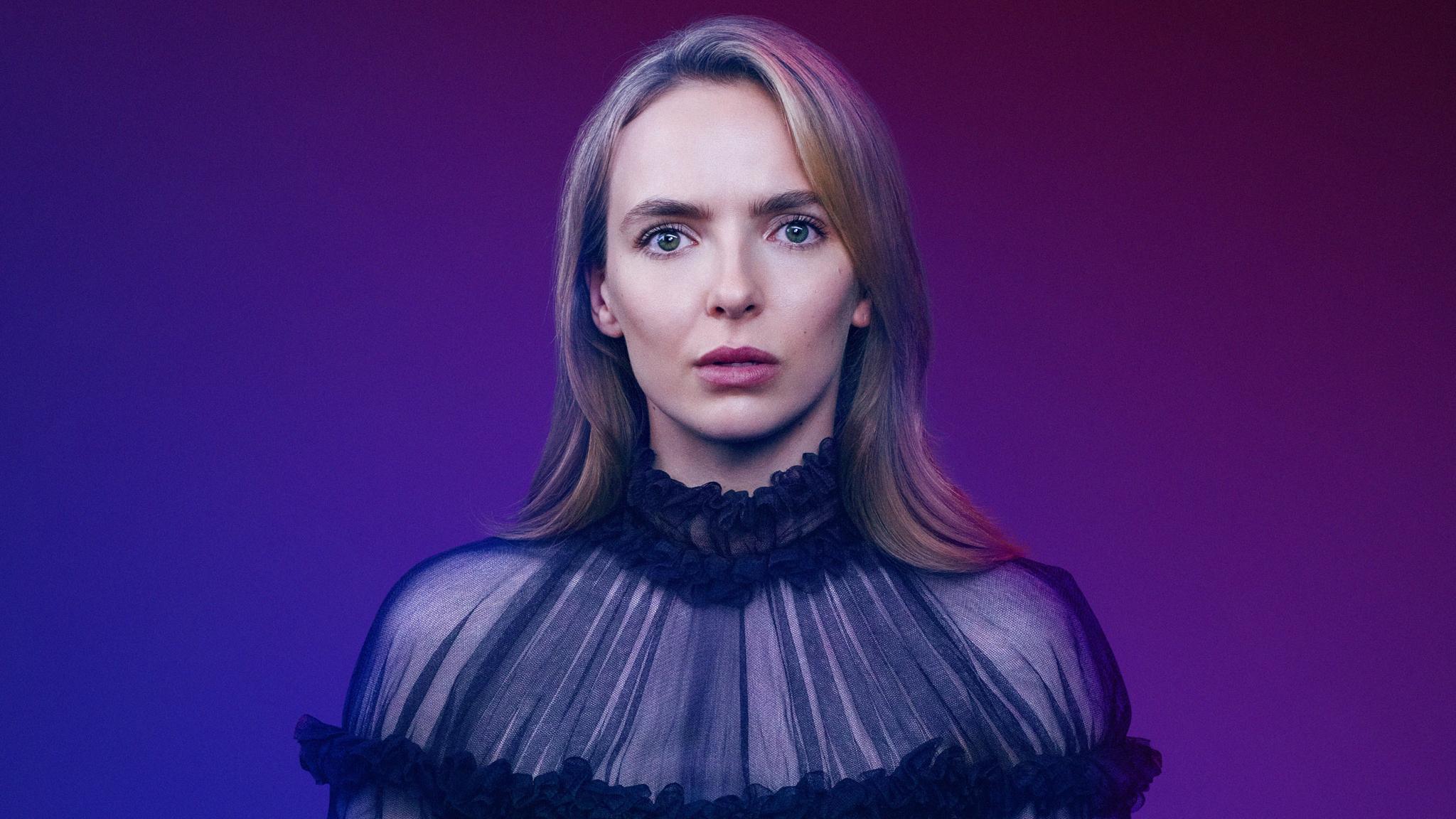
- Published6 January 2020
